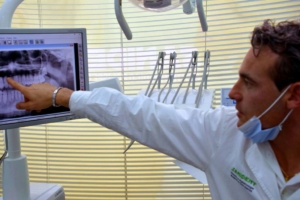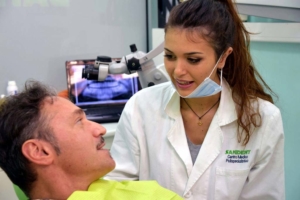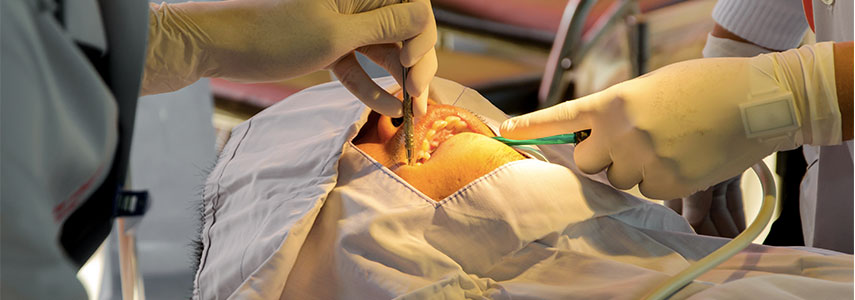In planning an oral surgery, such as tooth extraction, you will have noticed that the dentist is always oriented to fix the operation in the morning. The choice is not linked to the needs of the dentist or to his agenda, it is indeed a scientific motivation.
Oral surgery: coagulation times
 The times and the modalities of coagulation following an oral surgery intervention, such as the extraction of a tooth, vary from patient to patient.
The times and the modalities of coagulation following an oral surgery intervention, such as the extraction of a tooth, vary from patient to patient.
Post-surgery hemorrhage, a continuous bleeding that lasts about 8/12 hours from surgery, is one of the complications of post-extraction surgery and oral surgery in general, with a frequency rate of 26%.
Hemorrhage is due to a lower coagulation capacity. To determine the start of the coagulation process, TF, an extravascular tissue factor, released from damaged tissues.
In addition to blood components, saliva is also crucial for coagulation. It has been shown that saliva also contains TF and being in contact with the wound is able to promote coagulation.
Bleeding: incidence of salivary TF
The TF contained in the saliva therefore becomes one of the variables capable of affecting coagulation times. In a recently published research on Research and Practice in Thrombosis and Haemostasis an attempt was made to demonstrate the incidence of salivary TF on the duration of bleeding.
Why perform oral surgery in the morning
Through the in vitro study, saliva samples were collected from healthy individuals at three different times of the day: morning, afternoon and evening.
From the chemical analysis of the three different samples it emerged that in the sample taken during the morning the salivary TF compoment is greater.
The results of this research therefore show that performing oral surgery in the morning guarantees faster coagulation thanks to the salivary TF component.
This is only a first phase of research dedicated to the correlation between the salivary component and the rate of blood coagulation. Future studies will need to confirm the relationship between saliva and coagulation with a more in-depth analysis of salivary TF and clinical outcome.
The study of the oral microbiota is at the center of many research related to dentistry and even in this case analyzing the microbiota before the oral surgery and monitoring bleeding in the post-surgery could be the basis of new clinical indications that will guarantee the patient dental treatments with less trauma and less pain.
















